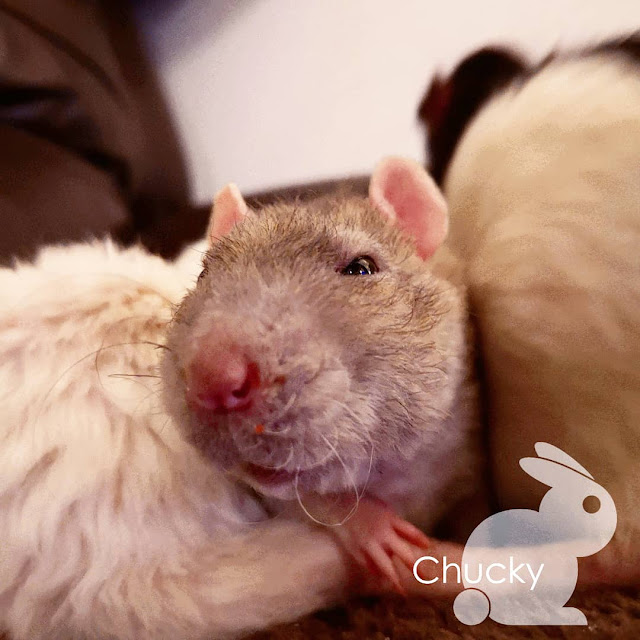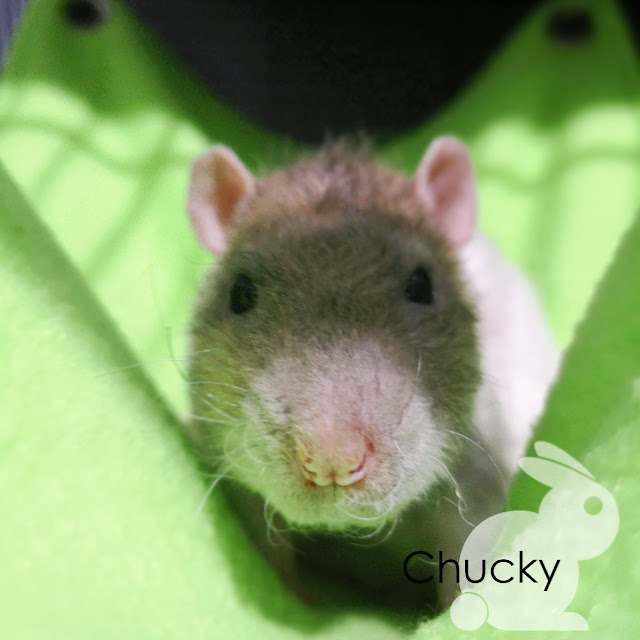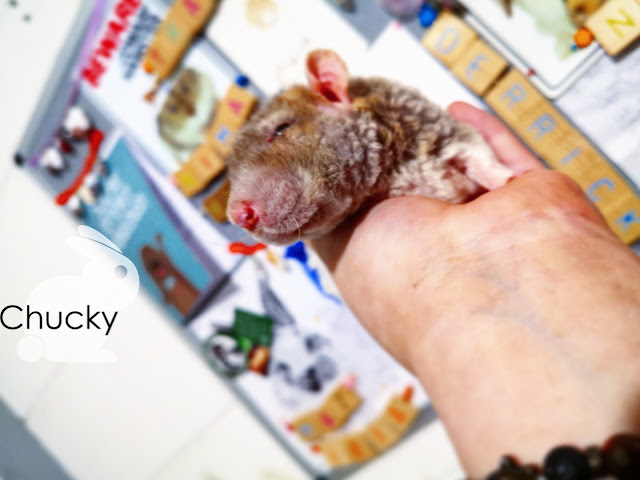Chucky: Living with Chronic Progressive Nephropathy
Chucky came to us as a bossy elderly male rat suffering from an irritated respiratory system. His companion, Zero, was also showing signs of chronic respiratory disease. Given that the bucks were at least 2-year-old geriatric rats, we decided to grant them sanctuary-status.
We introduced Chucky to nebulised 0.9% saline and prophylactics. Fortunately, after a few weeks, his breathing significantly improved and we were able to stop nebulising sessions.
Orchiectomy:
Chucky was clearly suffering from severe hormonal aggression which was impacting the other rat's wellbeing. Although people report less of a behavioural improvement when castrating older bucks, we still wanted to go ahead with the procedure.Chucky handled the procedure really well. He was the first rat we've ever had try and damage a castration surgical site, so he wore a buster collar for the first 48hrs when unattended.
We also introduced prophylactic oral antibiotics as well as post-op pain relief.
Later down the line, Chucky developed a post-surgical abscess. These are fairly common after castration.
Fortunately, after a couple of weeks, Chucky's abscess resolved and his behaviour improved substantially!
Chronic Progressive Nephropathy:
Chucky developed ageing symptoms, HLD, polydipsia and polyuria. We ran urinalysis which highlighted proteinuria and signs of pyuria.
The vets obtained a urine sample and microscopy findings also showed raised white blood cells (WBCs). We all agreed a sample should be sent to the microbiologists at PALS lab.
Chucky had diluted urine meaning he had a low specific gravity. This can be caused by polydipsia and/or kidney disease. Sometimes, diuretics may cause this too. The microbiologists also noted that Chucky's urine had an abnormally high amount of struvite crystals. Unfortunately, given all the symptoms, the vet suspected chronic progressive nephropathy.
We decided to introduce Chucky to a kidney supplement. In addition, we adapted the rat's main feed to be lower in protein and phosphorus. We also offered Chucky some Scandanavian seaweed whenever he was in a particularly hungry mood (that's the only time he would ever entertain it). Scandanavian seaweed contains minerals and many elements that can promote healthy kidney function.
If we still weren't satisfied with Chucky's progress, a bladder scan and full blood count would have been prudent.
Chucky managed to cope with CPN for a long time with the additional lifestyle amendments.
As his CPN progressed, he appeared to struggle with maintaining hydration, thus making him lethargic. He was introduced to subcutaneous fluids alongside our current management. He was incredibly tolerant of needles and showed substantial improvements after just 24 hours of fluids. We introduced subcutaneous fluids to his daily management.
Chucky kept going strong until the grand old age of 2.5-3 years old. Unfortunately, there became a day when Chucky's hind-leg degeneration was severely impacting his quality of life. He was also becoming painful from living with kidney degeneration for several months. We decided it was kindest to have Chucky humanely euthanised.Chucky passed away on the 10th of December 2019.













Comments
Post a Comment